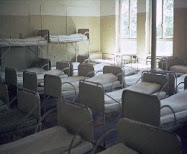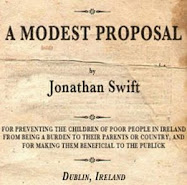
By Kevin Cullen, Globe Staff October 17, 2005
Legal deadline in Ireland spurs outreach to abused
They're fanning out to pubs and social clubs, anywhere the Irish gather in Boston. They're spreading the word about an effort to provide compensation for children who were abused at Catholic orphanages and reform schools back in Ireland -- children who may later have moved to America and settled in Boston.
Advocates for those abused believe the Irish government has done too little to let those living abroad know about the compensation available, so they are dropping off fliers and talking to Irish natives themselves.
Fewer than 3 percent of about 8,000 claims of abuse suffered at the institutions, which were run by Roman Catholic religious orders in Ireland, have come from people living in the United States.
''It is nothing short of a scandal that so few applications have come from places like Boston, which has such a large Irish community, and from the United States as a whole," said Tony Treacy, a founding member of the County Cork-based group Right of Place, which helps victims of institutional abuse. Treacy was first here two years ago, holding community meetings about the effort.
Until recently in Ireland, Catholic religious orders provided social services to troubled children, running reform schools and orphanages for those who had been abandoned or whose parents could not care for them, or who got into trouble with the law. In the 1990s, when the deference previously shown the Catholic Church receded, and adults shared stories of horrific sexual and physical abuse they suffered in the institutions, the government established a commission to determine the extent of the abuse, why it took place, and who was responsible.
Those who passed through Ireland's youth institutions between the 1920s and 1980s -- an estimated 150,000 people -- have until Dec. 15 to file a claim with the board set up to compensate the abused.
While there is no authoritative information about the whereabouts of those who passed through the institutions, victims' groups estimate that as many as 100,000 left Ireland, mostly for Britain and the United States. About 10,000 of them are believed to have settled in the Boston area, according to the groups.
The Residential Institutions Redress Board's figures show that more than half of claims have come from people living in Ireland, and nearly a third from Britain.
Victim advocates say claims from the United States should be closer to the percentage of those coming from Britain.
Eugene Murphy, a Cork lawyer who is traveling with Treacy and whose firm has represented about 400 people before the Redress Board, said the board advertised in Britain, but not in the United States.
''If they had advertised in the States, I have no doubt the number of applications would have been similar to those from the UK," said Murphy, who with Treacy spent the weekend dropping off fliers and talking to Irish natives at area pubs and social clubs.
Two years ago, an official with the Redress Board told the Globe it planned to advertise in the United States, but another board official, speaking on the condition of anonymity, last week acknowledged that the board has not advertised in newspapers or radio and television as it did in Britain. She could not explain why the advertising campaign did not take place in the United States.
While ostensibly under the aegis of Ireland's Department of Education, the Redress Board acts independently, according to Education spokeswoman Emma Kinsella. But the board conducts its business in private, and has no one authorized to talk to the public or media. According to its website, the Redress Board has processed more than 3,600 claims and awarded $340 million, with an average award of $92,000. Government projections say there will be more than 9,000 claims, with a final payout around $1 billion.
Despite the noble intent behind the compensation plan when it was introduced in 2002, it has been beset by controversy. Many Irish object to the government using taxpayer money to limit the financial liability of 18 Roman Catholic religious orders whose members or employees committed the abuse, while some victims have complained about the dry, businesslike manner of the process. The religious orders will contribute about $150 million, with taxpayers footing more than 80 percent of the bill.
Last week, Ireland was scandalized by reports that some lawyers already compensated by the Redress Board were cheating victims, deducting fees from victims' awards.
Treacy said victims should be aware that the redress process was created to deliver compensation, not therapy.
"All you're going to get from redress is money, not sympathy, said Treacy, who was sentenced to a reform school at age 11 for stealing chickens.
Those who bypass the Redress Board can take their claims to court, or appear before a separate panel trying to establish how prevalent abuse was, why it took place, and who was responsible. In an interview, a New Hampshire woman who spent 13 years in a Dublin orphanage said she withdrew her claim, because she was more interested in putting the abuse that she and nine siblings suffered into the public record than in getting compensation.
Treacy said that whatever the final number seeking compensation, it will constitute a fraction of those who suffered.
''I personally know of 25 to 30 men who were at school with me who have told me they will not apply," said Treacy, who was sexually and physically abused at the reform school. ''Their wives don't know. Their children don't know."
Treacy will speak at 7 p.m. tomorrow at the Irish Immigration Center, 59 Temple Place, Suite 1010. The Residential Institutions Redress Board website is www.rirb.ie.
Rorates deskundige :
..diepst mogelijke respect voor de gevoelens van de slachtoffers ook hier......door blijven gaan met het wurgen van de kerk.. met containers weggraaien van collectegelden...miljoenen andere gelovigen voor heel andere doeleinden gegeven werden ......



















Geen opmerkingen:
Een reactie posten